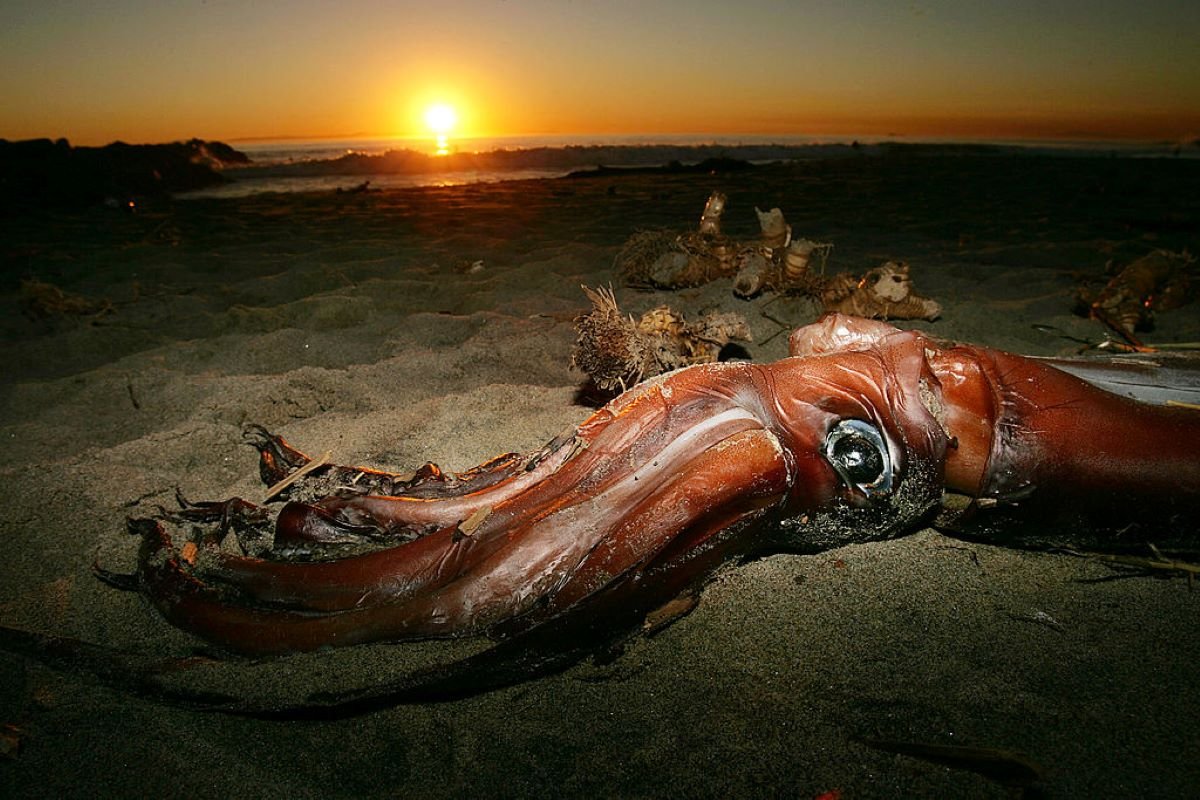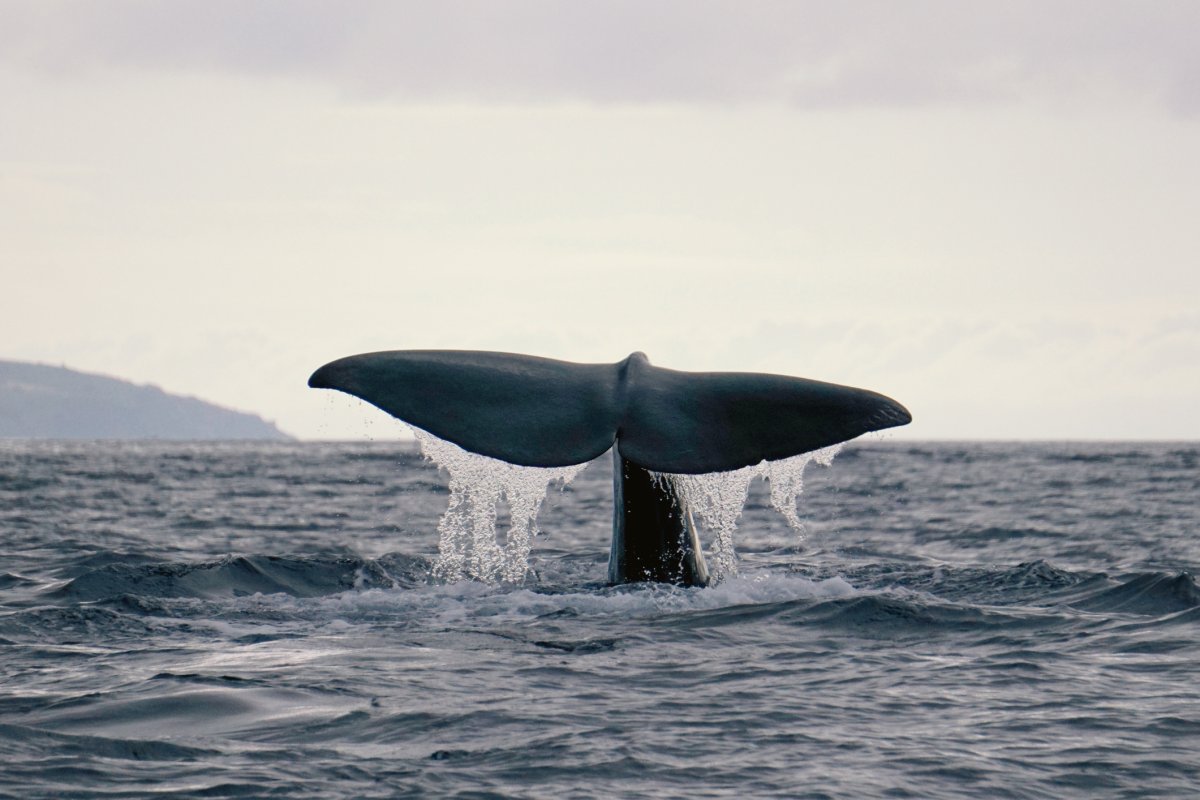A 10-foot-long giant squid was recently found floating in the sea off the coast of Tenerife in the Canary Islands. The stunningly preserved 440-pound behemoth was found by Teo Lucas, a naturalist and photographer, and taken to the Spanish Institute of Oceanography for further study.
"Most museum/research specimens come from the stomach contents of sperm whales or from specimens washed up on beaches and so are in very poor condition and often incomplete," Jon Ablett, senior curator of mollusks and cephalopods at the Natural History Museum in London, told Newsweek.

This unusual specimen was almost entirely intact. Even its enormous eyes–the largest eyes known in the animal kingdom–were still in its sockets. The only part that was missing was the end of one of its tenticles, which is thought to have been bitten off by the animal that killed it.
In a post on Facebook, the Society for the Study of the Cetaceans in the Canary Archipelago, known as SECAC, said that the massive mollusk was only a juvenile and that the adults could grow to be much bigger.
"Giant squid–scientific name Architeuthis dux–are thought to reach lengths of up to 12 meters (39 feet)," Ablett said. "It is thought that the colossal squid, Mesonychoteuthis hamiltoni, may reach an [even] larger size in terms of mass and possibly also in length than that of the giant squid, although no one has found a fully mature specimen."
Despite their tremendous size, giant squid are notoriously hard to find, which makes it difficult to estimate how many of them there are.
The best guess on giant squid population comes from an unusual source. "From population estimates based on stomach content analysis of sperm whales, the major predator of adult giant squid, we do not think that giant squid are rare in nature," Ablett said. "A study by Clyde Rober and Elizabeth Shea estimated up to 131 million giant squid are fed upon by sperm whales each year."

The squid can be found in all of the world's oceans, although they are rarely found in polar regions or around the equator. "They are more commonly found in the waters around New Zealand and Japan, the North Atlantic and in the waters around South Africa," Ablett said.
Because of their elusive nature, our understanding of this species is fairly limited. Analysis of Lucas's stunningly preserved specimen could therefore provide important insights into the biology of this king-sized squid.
Uncommon Knowledge
Newsweek is committed to challenging conventional wisdom and finding connections in the search for common ground.
Newsweek is committed to challenging conventional wisdom and finding connections in the search for common ground.
About the writer
Pandora Dewan is a Senior Science Reporter at Newsweek based in London, UK. Her focus is reporting on science, health ... Read more
To read how Newsweek uses AI as a newsroom tool, Click here.








